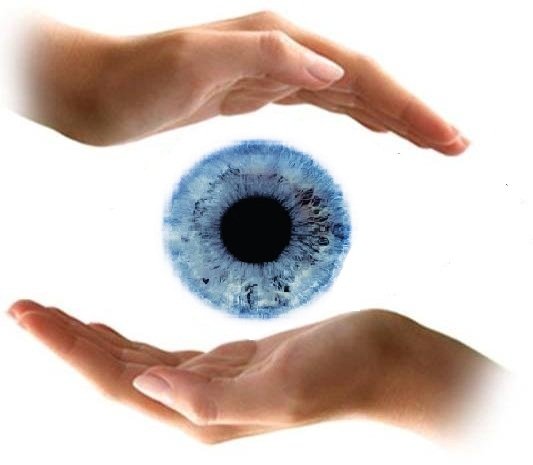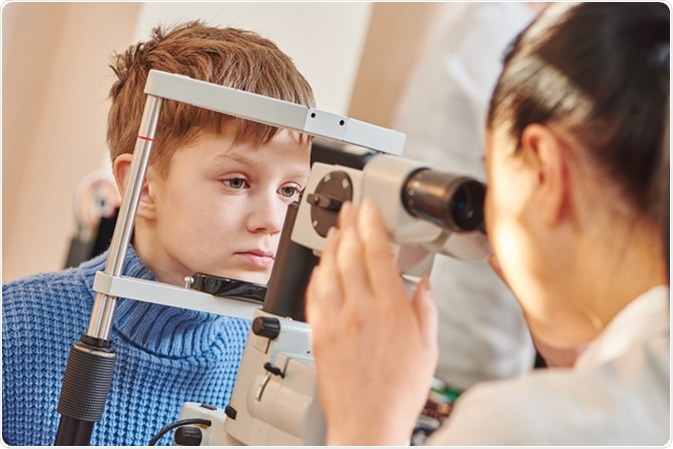Pediatrics in Andalusia: Compassionate Look After Growing Families
Is Refractive Surgical Procedure Right for You? Factors to Think About for Better Eyecare
In the world of eye treatment, the choice to go through refractive surgery is a crucial one that requires thoughtful factor to consider. As people seek clearness and flexibility from the restraints of corrective lenses, many aspects enter play when determining the suitability of such a treatment. From the details of one's eye health to the details of day-to-day habits and personal assumptions, each facet holds value in the wider landscape of refractive surgical treatment candidacy. By reviewing these crucial elements with care and precision, a more clear course in the direction of educated decision-making arises.
Eye Wellness Analysis
When considering refractive surgery, a comprehensive eye wellness examination is important to evaluate the viability of the procedure for each and every person. eye doctors in andalusia. This analysis involves a series of tests and examinations conducted by an eye care expert to figure out the general health of the eyes, the visibility of any type of hidden conditions, and the stability of the refractive mistake
During the assessment, numerous factors are thought about, such as the patient's case history, present eye prescription, corneal thickness, pupil dimension, and tear movie high quality. These analyses aid to recognize any contraindications to refractive surgical treatment, such as corneal problems, cataracts, or neglected eye infections. Furthermore, the assessment assists to handle patient expectations pertaining to the prospective outcomes of the surgery based upon their special eye characteristics.
Ultimately, the eye health and wellness assessment is essential in making certain the safety and security and performance of refractive surgical treatment, as it supplies beneficial insights into the person's eye health condition and aids identify one of the most ideal therapy options for achieving ideal visual outcomes. (eye doctors in andalusia)
Lifestyle Assessment
A thorough lifestyle assessment is important in determining the viability of refractive surgical treatment for a person's visual adjustment demands. Way of living factors such as occupation, pastimes, and everyday tasks play a vital duty in the decision-making procedure relating to refractive surgical treatment. For example, individuals with careers that involve a high level of exercise or exposure to environmental elements may have different aesthetic demands compared to those with less active workdesk tasks. Recognizing how a person's lifestyle may affect their vision post-surgery is important for managing assumptions and making certain ideal outcomes.
Furthermore, lifestyle habits such as sports participation, outdoor activities, or even skincare regimens can affect the healing procedure and overall success of refractive surgical treatment. By performing a detailed way of living analysis, eye care professionals can customize their referrals and treatment plans to fulfill the one-of-a-kind requirements of each person, ultimately leading to improved aesthetic outcomes and fulfillment.
Assumption Positioning

Clients need to understand that while numerous individuals accomplish 20/20 vision or better complying with refractive surgical treatment, some may still call for glasses for specific tasks like reading or driving at night. Managing these assumptions aids protect against disappointment and frustration post-surgery, leading to a more favorable total experience for the client.
Danger Evaluation

Aspects that might increase the danger of issues include age, particular clinical conditions like autoimmune conditions, unstable vision prescription, thin corneas, and unrealistic patient expectations. Additionally, choosing a skilled and experienced doctor, adhering to pre and post-operative treatment directions faithfully, and revealing any appropriate medical background can help alleviate risks.
To decrease the chance of complications, ophthalmologists perform comprehensive pre-operative assessments to identify any contraindications to surgery. They also talk about the prospective threats the original source and advantages with patients throughout the consultation procedure. By involving in open communication and shared decision-making, both the eye doctor and the person can function with each other to establish if refractive surgery is the best option based on private risk profiles and desired end results.
Appointment Value
Taking into consideration the crucial function of educated decision-making in examining risks and prospective issues in refractive surgery, the consultation procedure holds considerable significance in assisting individuals towards optimal results. During the appointment, the ophthalmologist assesses the patient's eye health, refractive mistakes, and overall suitability for surgical treatment. This first assessment is crucial in identifying one of the most suitable procedure for each and every individual, taking right into account variables such as corneal density, pupil size, and existing eye conditions.
Moreover, the consultation acts as an opportunity for clients to discuss their assumptions, concerns, and any kind of inquiries they may have relating to the surgical procedure. Clear communication in between the individual and the surgeon is vital to make sure practical assumptions and a complete understanding of the prospective dangers and advantages included.
Furthermore, the consultation allows the doctor to discuss the various surgical options offered, their respective results, and the post-operative care required. This thorough conversation empowers patients to make well-informed choices about their eye treatment, bring about far better contentment and results post-surgery.
Verdict
To conclude, people thinking about refractive surgical procedure needs to go through an extensive eye health and wellness examination, evaluate their lifestyle routines, align their assumptions with potential outcomes, assess the involved dangers, and prioritize examinations with eye care specialists. These variables play a crucial function in check identifying the viability of refractive surgery for each and every individual, ensuring optimum outcomes and fulfillment with the procedure.
People considering refractive surgical procedure typically have high expectations pertaining to the results, anticipating best vision without the requirement for glasses or get in touch with lenses. While refractive surgery can significantly boost vision and reduce reliance on aesthetic help, it is crucial for clients to comprehend that outcomes may differ based on individual factors such as the level of refractive mistake, corneal density, and general eye health and wellness.
By involving in open communication and shared decision-making, both the ophthalmologist and the patient can function with each other to establish if refractive surgery is the best choice based on specific danger accounts and preferred end results.
Taking into consideration the vital duty of educated decision-making in assessing dangers and prospective problems in refractive surgical procedure, the assessment procedure holds significant significance in directing individuals towards optimum end results. During the assessment, the eye doctor examines the client's eye health and wellness, refractive mistakes, and general suitability for surgery.